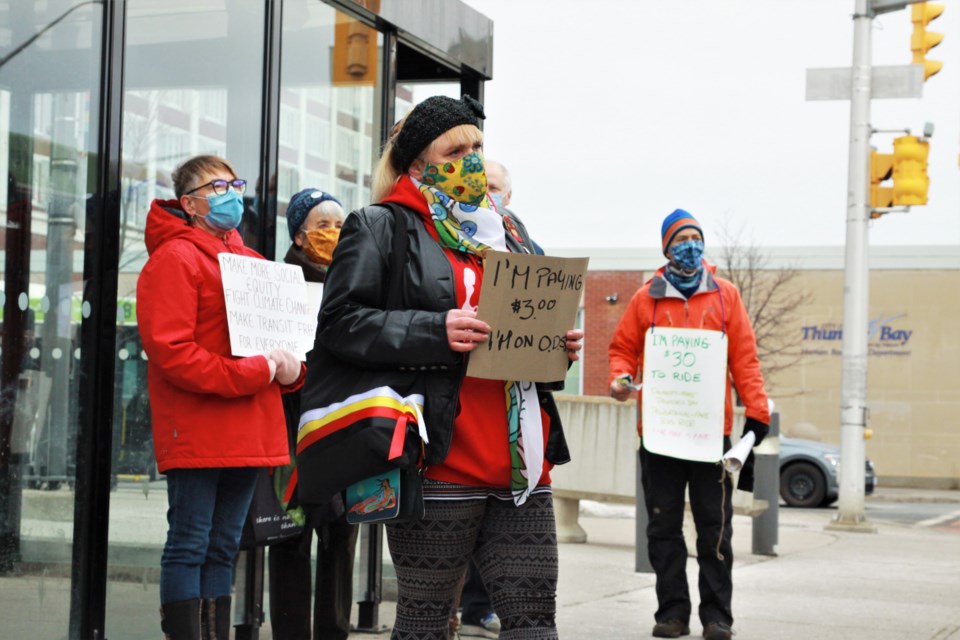THUNDER BAY – Few people would accept paying $10 or $20 for a bus trip across town, but Paul Berger says those numbers give an idea of the true impact Thunder Bay’s $3 transit fare has on people living on low incomes.
Berger joined a group of anti-poverty advocates seeking to dramatize the toll bus fare takes on the most vulnerable at the city hall transit hub Friday.
Their "proportional fare bus ride" was part of a larger campaign to make transit free, spearheaded by Poverty Free Thunder Bay and supported by a number of local organizations.
Berger, a professor at Lakehead University, forked over $30 for his bus trip – a portion of his income equivalent to $3 for someone on the Ontario Disability Support Program (ODSP), the group calculated.
“It’s going to hurt, but that’s the point of this action,” he said. “You can be sure if I had to pay $30 every time I went somewhere in Thunder Bay, it would severely limit my mobility. It’s really not fair for people in this city to have that much of a burden to ride transit.”
Another participant, Tracey MacKinnon, said the campaign to make transit free resonated with her as someone on disability benefits. The change would allow more room in her limited budget for necessities like food, she said.
“As someone living in poverty on ODSP, this would impact my life so much,” she said. “I’d be able to afford fresher vegetables, something simple like instead of just ground beef all the time, maybe chicken.”
Sara Williamson said her proportional fare of $10.50 made her reflect on how she takes the ability to ride the bus for granted. A longtime anti-poverty campaigner, she said people are sometimes forced to walk across town to access services because they can't afford the bus.
Eliminating fares altogether is estimated to cost the city about $7 million a year, based on current ridership numbers. However, advocates see the move as part of a larger reinvestment in transit that would also make other service improvements in the hopes of growing ridership.
“This isn’t just about poverty reduction,” said Berger, “it’s about transforming the city, it’s about attracting people, and making transit better.”
While city administration studies how eliminating fares would impact its bottom line ahead of a report to city council by February, Poverty Free Thunder Bay plans to produce a report of its own exploring the benefits of the policy.
That will be based on the experiences of the roughly 100 cities around the world that have already implemented free transit, Berger said.
Thunder Bay would be the first Canadian city to join that list.
